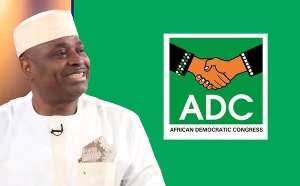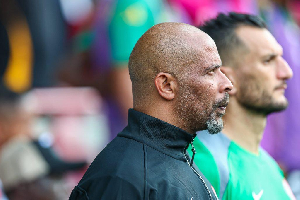Opinions of Sunday, 6 June 2021
Columnist: Stanley C. Duruibe
Is our own an unknown government?
Who is in charge in the Presidency? Perceptibly, some spokespersons, aides and government appointees are seemingly the ones calling the shots in the apex office in Nigeria. The manner in which they stand in for the President is more than ever what is obtainable in contemporary governance. Undeniably, delegated responsibility takes place in most organisations so that the bulky task of running an organisation does not fall on one individual; but there is a limit to which responsibilities should be delegated. In fact, the task of addressing the nation and taking stands on critical national issues should be the sole prerogative of the President, quod erat demonstrandum. Oh, what does a common pundit like me know?
With the benefit of hindsight, I shouldn’t have pointed out this issue when someone who should know better, a leading journalist and spokesperson for President Muhammadu Buhari, Femi Adesina, had already declared that Nigerians have no right to demand a presidential address from their President about a year ago during a call-in session on a live programme aired by a national radio station.
In saner climes, elected leaders are most often than not charismatic people with immense appeal to the public. The auras they parade tend to showcase the state of their nations’ dignity.
When you hear them speak on television, they do it with such kind of charisma that makes one’s eyes glued to the telly and mouth ajar in awe at the manner of captivation they evoke. Oftentimes, they are seen addressing key national and international issues, dousing tension in issues that have overheated their polities, de-escalating national crises and building up the morale of their citizens – thereby reverberating their nationalistic spirit. Succinctly, they are very active in the public domain.
Some keen observers get mesmerised by such kind of leaders and often wish to be ruled by them.
In contrast, the same cannot be said of our nation where the leaders seem to be totally disconnected from the people they are meant to lead. Ascertaining the veracity of the preceding claim is a no-brainer:
Just simply figure out how many times your elected representatives- federal and state lawmakers- and public office holders have statutorily engaged their constituency members to know their needs and problems. Hardly ever, I guess. Rather, you only see them approach their constituency, with all humility, during electioneering to solicit votes.
There is no gainsaying that when merit, experience, competence, and strength of character are entrenched in the leadership culture of any nation, the best brains are normally found in the positions of leadership.
Perhaps, there is no other shortcut to building a great nation other than this simple fact. On the flip side, where mediocrity, nepotism, cronyism, sectionalism thrive, charlatans, clowns and sycophants hold sway in positions of leaderships of such places.
The latter case typifies the state in Nigeria. Perhaps, the recent divisive and inciting statement credited to the Attorney General of the Federation and Minister of Justice, Abubakar Malami, where he alluded to the ban of spare parts trading in the North by the Northern governors as being the same to an earlier resolution of the Southern governors to ban open grazing of cattle in the South speaks volumes about the inherent form of morals and value judgment found in some of the leaders we have in place.
Does the AGF need to be reminded that the activities of these marauding killer-herdsmen had repeatedly been a source of national tragedy, snowballing to unimaginable proportions ever since the Buhari regime came on board about six years ago? Whereas the spare parts dealers are legal and legitimate business owners whose activities do not in any way constitute any public disturbance, but rather add value to the economy of their respective states by way of the taxes and returns they remit to their host states, the herdsmen obviously disrupt public peace as they have been alleged to maim and kill their unsuspecting victims as well as destroy the farmlands of their host communities.
I watched with utter dismay on Channels Television Sunday Politics of May 30, 2021, where Garba Shehu, the media and publicity aide to President Buhari, claimed that his principal had performed better than all his predecessors since 1999. Alas, on that same day – prior to making this claim – a chieftain of the ruling All Progressive Congress, Ahmed Gulak, and the chief provost of Nigerian Immigration Service in Imo state, OkiemuteMrere, were both reportedly assassinated in Owerri, the Imo State capital; a member of Nasarawa State House of Assembly, Ismai Danbaba, was kidnapped while travelling to Jos; gunmen attacked and burned the police state Criminal Investigation Department in Umuahia, Abia State; bandits abducted some schoolchildren from an Islamic school in Rafi LGA, Niger state; a former judge of Enugu state high court, Stanley Nnaji, was murdered in Enugu; a businessman, Linus Owuamanam, was assassinated in Ibadan, Oyo State; nine people were reportedly killed by suspected Fulani herdsmen in Isi-uzo LGA, Enugu State; gunmen abducted a lecturer from the staff quarters of the Taraba State University in Jalingo; suspected Fulani herdsmen killed a pregnant woman identified as Theresa Tartsegha in Keana LGA of Nasarawa State. Most of the country’s economic indicators show a deplorable outlook when compared to their previous status in 2015 when Buhari assumed office.
This compendium of tragic events leaves one with the shuddering impression that the government of the day and its handlers seem not to be sensitive to the horrible plight of Nigerians. What’s more, one may assume that there is no government in the land.
Can the President possibly arise and fully take charge of the leadership of this nation by vigorously tackling the myriads of security, political, economic and socio-economic challenges facing this country? Of course, leadership positions in government are too sacrosanct and should not be left in the hands of mere political errand boys, political jobbers, and surrogates whose sole intent is to always be in the good books of their master.














